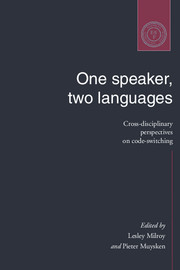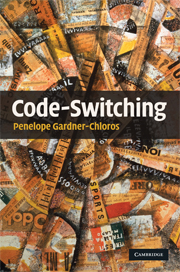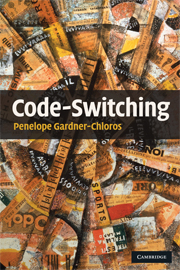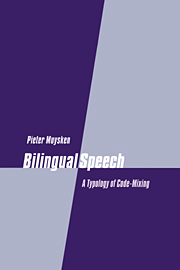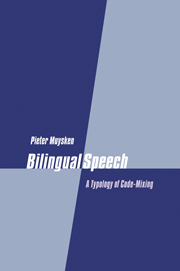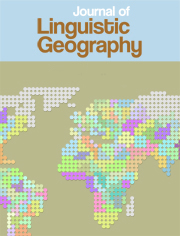One Speaker, Two Languages
Code-switching--the alternating use of several languages by bilingual speakers--does not usually indicate lack of competence on the part of the speaker, but results from complex language skills. The reasons why people switch their codes are as varied as the directions from which linguists approach this issue. This volume of essays by leading scholars explores code-switching in particular social and institutional contexts, and brings together current research into the social, grammatical and psycholinguistic issues raised by this highly significant form of speech behavior.
- First full-length book to cover the subject of code-switching systematically and comprehensively
- Interdisciplinary focus; excellent introduction to the subject
- Essays by leading scholars in the field, carefully integrated into the volume as a whole
Reviews & endorsements
"...brings together an excellent representative collection of theoretical essays on bilingual code-switching....the breadth of the research areas...makes this volume worthwhile reading....a valuable collection." Rocky Mountain Review
"...this volume represents an excellent state of theart overview of recent theoretical approaches to code switching from several different perspectives. Any linguist interested in the way bilinguals mix languages would benefit from reading it." Richard Nivens, Notes on Linguistics
"...comprehensive coverage of such a complex field of inquiry....It presents a clear step forward." Journal of Linguistic Anthropology
Product details
August 1995Paperback
9780521479127
380 pages
230 × 153 × 30 mm
0.62kg
22 tables
Available
Table of Contents
- 1. Introduction Lesley Milroy and Pieter Muysken
- Part I. Code-Switching in Institutional and Community Settings:
- 2. Bilingual speech of migrant people Louise Dabène and Danièle Moore
- 3. Code-switching in the context of dialect/standard language relations Anna Giacolone-Ramat
- 4. Code-switching in community, regional and national repertoires Penelope Gardner-Chloros
- 5. Code-switching in the classroom Marilyn Martin-Jones
- Part II. Code-Switching and Social Life:
- 6. The pragmatics of code-switching Peter Auer
- 7. A social network approach to code-switching Lesley Milroy and Li Wei
- 8. Code-switching and the politics of language Monica Heller
- Part III. Grammatical Constraints on Code-Switching:
- 9. Code-switching and grammatical theory Pieter Muysken
- 10. Patterns of language mixture Shana Poplack and Marjory Meechan
- 11. A lexically based production model of code-switching Carol Myers-Scotton
- Part IV. Code-Switching in Bilingual Development and Processing:
- 12. A psycholinguistic approach to code-switching François Grosjean
- 13. Code-switching in bilingual first language acquisition Regina Köppe and Jürgen M. Meisel
- 14. The code-switching behaviour of adults with language disorders Kenneth Hyltenstam
- Conclusion
- 15. Code-switching research as a theoretical challenge Andrée Tabouret-Keller.

